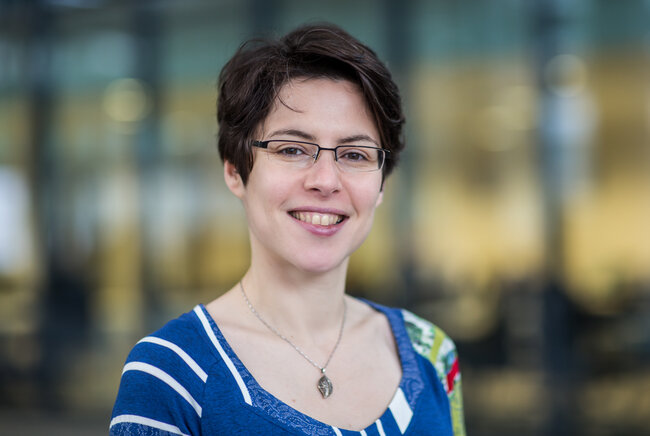Risk of electromagnetic interference in future vehicles to be addressed by PARASOL project
TU/e researcher Anne Roc’h coordinates European funded Marie Skłodowska-Curie project that’s now hiring for 12 PhD positions for Green Mobility in Electrical Engineering (Electromagnetism) and Material Engineering.

Electromagnetic interference can prove harmful to the safety of electronic equipment in vehicles. Therefore, new ways are needed to tackle EMI issues in the critical technologies of today and the future. To help address these issues, the PARASOL project has received in Horizon Europe funding. The project is coordinated by Eindhoven University of Technology researcher Anne Roc’h, and there’s an open call for 12 PhD positions.
A new Mapping Study by the EU has highlighted how the future of public health and the environment will be based on Safe and Sustainable-by-Design (SSbD). The introduction of the SSbD approach is relevant to the shielding of electromagnetic interference (EMI), particularly as it relates to the mobility market. Vehicles are undergoing two interrelated revolutions: the rise of the electric vehicle and an increase in autonomous functionality. Fully electric vehicles will inevitably include a lot of power electronics, while the safety of the vehicle will rely increasingly on sensors, actuators, wireless communications, and programmable electronics. The problem is that power electronics are a source of electromagnetic interference, while the sensors, actuators, wireless communications, and programmable electronics are all becoming increasingly sensitive to this EMI.
Shielding is the primary method to achieve EM protection and compatibility. It uses materials to protect sensitive devices from disruption, which means these EM shields inevitably impact on the weight, volume, and the performance of a vehicle. The design of the shield should minimise the discontinuities and seal the enclosures to ensure a homogeneous, conductive surface.
Europe’s EMI risk-management approach has become European law. However, many companies are struggling. There is a lack of Key Performance Indicators (KPIs), a lack of synergy across the lifecycle of EMI-shielding solutions and no clearly prescribed assessment methodology in place. An interdisciplinary Safe and Sustainable-by-design (SSbD) approach is required. We must bring together expertise from four key areas: electromagnetic compatibility (EMC), materials engineering, system-safety engineering, and sustainability management. For SSbD to be managed through the design lifecycle, this systems-thinking process must result in new EMI-shielding solutions that respect the specifics of the product. The interdisciplinarity expertise required to achieve this is inherent to the PARASOL (European Doctoral Network for Safe and Sustainable ElectroMagnetic Shielding Solutions for Mobility) consortium.

Open call for positions
Applications are invited for 12 PhD positions (Doctoral Researchers). The consortium groups 6 hiring Universities: TU Eindhoven (NL), University of Twente (NL), KU Leuven (BE), Tomáš Baťa University (CZ), University of York (UK) and Universitat Politècnica de Catalunya (ES). Each of the 12 Doctoral Researchers (DRs) will be trained to work in multi-disciplinary and multi-cultural teams, with a new mindset tuned towards the inclusion of the SSbD approach into innovative design methods. For this inclusion to occur, each DR will develop through their research the missing dedicated tools and techniques, and apply them to the complete lifecycle of electromagnetic shielding solutions for vehicles (car, plane, train and ship). This hands-on training is supplemented with several scientific professional courses and an immersive training where the DRs can fine-tune their skills for the jobs of tomorrow, while addressing the societal challenges of the PARASOL program. More information can be found at the official website for the project: https://parasol-project.eu/. Details of the application process and PhD positions can be found here. The deadline for online application is 30 September 2022.
Funding
This project has received funding from the European Union's EU Framework Programme for Research and Innovation Europe Horizon under Grant Agreement No 101072881 (for Doctoral Researcher Positions 1 to 12, apart Positions DR5 and DR9) and UKRI (UK Research and Innovation, for Doctoral Researcher Positions DR5 and DR9).